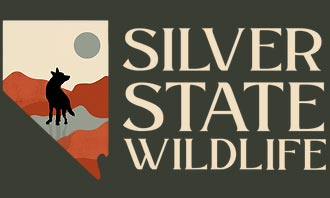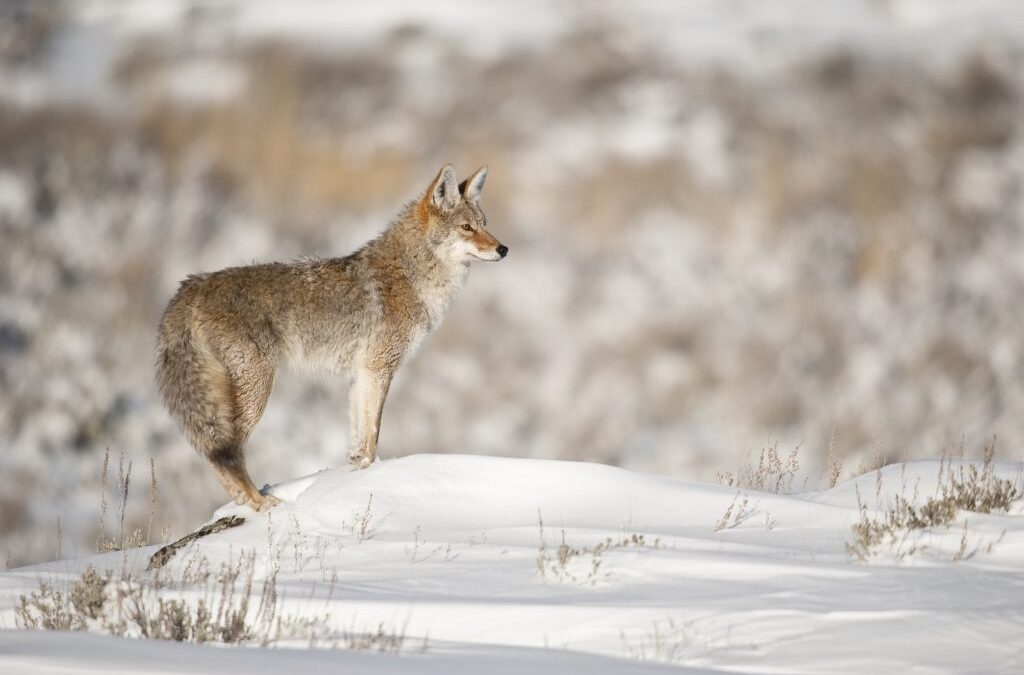The 5-4 vote was against the recommendation of the Nevada Department of Wildlife and ignored the non-hunting public’s opposition to the events
RENO, NEVADA — On November 5, 2021, the Nevada Board of Wildlife Commissioners voted 5-4 to reject a proposed rule to ban gruesome wildlife killing contests in the state. The vote was against the recommendation of the Nevada Department of Wildlife and ignored the non-hunting public’s opposition to the events. The rule would have prohibited a person from participating in, organizing, promoting or sponsoring a contest to kill wildlife, including coyotes, bobcats and foxes, for cash and prizes.
Leading animal welfare groups, conservationists and wildlife advocates have long urged the state to end wildlife killing contests, which have been condemned by hunters and professional wildlife managers in the Western states and across the U.S. In a letter submitted to the Commission last week, wildlife advocates and scientists pointed out that the best available science indicates that indiscriminate killing of native carnivores does not effectively manage their populations and likely exacerbates wildlife-livestock conflict.
During the meeting, Nevada Department of Wildlife Director Tony Wasley implored the Commission to move the rule forward. Pointing to ethics and the North American Model of Wildlife Conservation, he stated, “Killing contests are ethically upsetting by virtue for most members of society. Hunting should not be a competition, as such behavior ultimately degrades the value of life and undermines respect for the animals being hunted.” He went on to say, “In my ethics as a hunter I hope to defend a deeper and more profound sense of hunting than what I fear coyote contests say to the general public about hunters and our ethics.” He underscored that hunters make up an “extreme minority of citizens in Nevada” and that hunting is a “privilege” that is “subject to loss or erosion based on public perceptions.” He concluded, “my fear as a sportsman and my fear as the director of the Department of Wildlife is an unwillingness to consider what society at large feels about a certain activity will hasten the erosion of the hunting privileges that I hold near and dear.”
The Commission’s refusal to take action on this issue comes at a time when wildlife agencies across the country struggle to remain relevant among a public whose values about wildlife are shifting substantially away from the traditional view that wildlife should be managed for human benefit and toward the belief that humans should coexist with wildlife.
“It’s a decision that shows how astonishingly out of touch most commissioners are with the vast majority of the Nevadans they are supposed to represent,” said Chris Smith, Southwest wildlife advocate for WildEarth Guardians. “Wildlife killing contests are not hunting. They are not wildlife management. They are an excuse to kill native animals for sport and prizes. It’s sickening.”
“By siding with a fringe group of wildlife killing contest enthusiasts, the Commissioners who voted to defeat this narrowly crafted policy are sanctioning a bloodsport that is opposed by humane advocates, mainstream hunters and the general public,” said Jeff Dixon, Nevada state director for the Humane Society of the United States. “These Commissioners have once again failed to support even the most modest of measures to protect our state’s wildlife from the cruelest practices—forsaking science, the recommendations of NDOW’s director and the will of the people. In taking this short-sighted action that only benefits the few people who revel in turning animals into disposable game pieces for prizes, they’ve only illustrated why Nevada’s wildlife management regime is deeply undemocratic and incapable of representing anyone with wildlife values that differ from theirs.”
“The Nevada Board of Wildlife Commissioners has proven once again that they are unfit to govern wildlife management in Nevada,” said Patrick Donnelly, Nevada state director at the Center for Biological Diversity. “The grotesque spectacle of killing contests has no business in a civilized society. But even against the recommendation of the wildlife managers at the Department of Wildlife, the Commission just gave killing contests their seal of approval. The Commission is broken, and we need legislation to dramatically reform the composition of the Commission so that it better reflects Nevadans.”
“It’s time to reform the Nevada Board of Wildlife Commissioners,” said Michelle Lute, PhD in wildlife management and national carnivore conservation manager for Project Coyote. “The voices of all Nevadans and the interests of wildlife and wild places are not being heard and we will continue to work toward a just governance system in Nevada.
Prior to Friday’s meeting, the Commission received thousands of comments from members of the public in support of the rule, including a letter signed by eighteen nonprofit organizations representing Nevada citizens—including the Center for Biological Diversity, the Humane Society of the United States, Project Coyote, WildEarth Guardians, Animal Legal Defense Fund, the Animal Welfare Institute, the Basin & Range Watch, Heaven Can Wait Animal Society, the Humane Society Veterinary Medical Association, Predator Defense, the Nevada Wildlife Alliance, the Progressive Leadership Alliance of Nevada, the Las Vegas DSA, the Rewilding Institute, the Sierra Club Toiyabe Chapter, the SPCA of Northern Nevada, the Western Watersheds Project, and the Western Wildlife Conservancy.
Background information:
- Eight states, including the five western states of Arizona, California, Colorado, New Mexico and Washington, have already banned wildlife killing contests.
- At least 30 wildlife killing contests have been held in Nevada since 2016. They take place across the state including in Reno, Battle Mountain, Elko, Las Vegas, Winnemucca, Pioche, Henderson, Hawthorne, Austin, Carvers, McGill and Fish Lake Valley.
- During wildlife killing contests, participants compete for cash and prizes for killing the most, the largest and the smallest animals within a given timeframe, usually 24 to 72 hours. Participants often use night vision thermal imaging scopes and electronic calling devices that mimic the sounds of young in distress to lure animals into gun range. Competitors gather to weigh and count the bodies and receive prizes. After the event, the dead animals are typically dumped.
- The Public Trust Doctrine holds that wildlife in Nevada belongs to all Nevadans equally. A small share of Nevadans hunt (only 2.9 percent of Nevadans were paid hunting license holders in 2021) and hunters enjoy relatively high public acceptance of hunting as it is commonly conceived. But the small portion of hunters who participate in wildlife killing contests is on the fringe of that community and, according to a poll of Nevadans five years ago, the majority of Nevadans would prefer these contests be banned.
- The Association of Fish & Wildlife Agencies and the Wildlife Management Institute recently noted that public attitudes about wildlife are shifting substantially in Western states and underscored the need to appeal to a broader constituency to ensure agencies remain influential in the future. The “America’s Wildlife Values: Nevada State Report” shows that a plurality of Nevadans hold “mutualist” values, defined as “believ(ing) wildlife are part of our social network and that we should live in harmony.” The share of mutualist values holders is double that of “traditionalists,” who “believe wildlife should be used and managed for human benefit.”
- Wildlife killing contests are not rooted in tradition, have no subsistence or conservation purpose, and contravene long standing principles of hunting ethics—namely, that wildlife may only be killed for a legitimate, nonfrivolous purpose; that scientific management is the proper means for wildlife conservation; and that wildlife should not be commercialized.
- The draft rule as written would simply have prohibited competitions that involve the mass killing of animals for prizes, but offered no further restrictions on the hunting of the covered species. In other words, coyotes would continue to be hunted without restrictions and without a hunting license throughout the year in Nevada.
- In 2016, the Nevada Board of Wildlife Commissioners stated, in draft meeting minutes, “The wildlife management profession does not generally recognize the use of contests as a tool with substantial wildlife management effect.”
- Wildlife management professionals and scientists stress that killing coyotes in these contests will not reduce coyote numbers, will not reduce conflicts with farm animals, pets, or people, and will not yield more deer and turkey for hunters. NDOW points out that coyotes are a natural part of the state’s ecosystem and that they are “…deeply rooted in the history and lore of the American west.”

